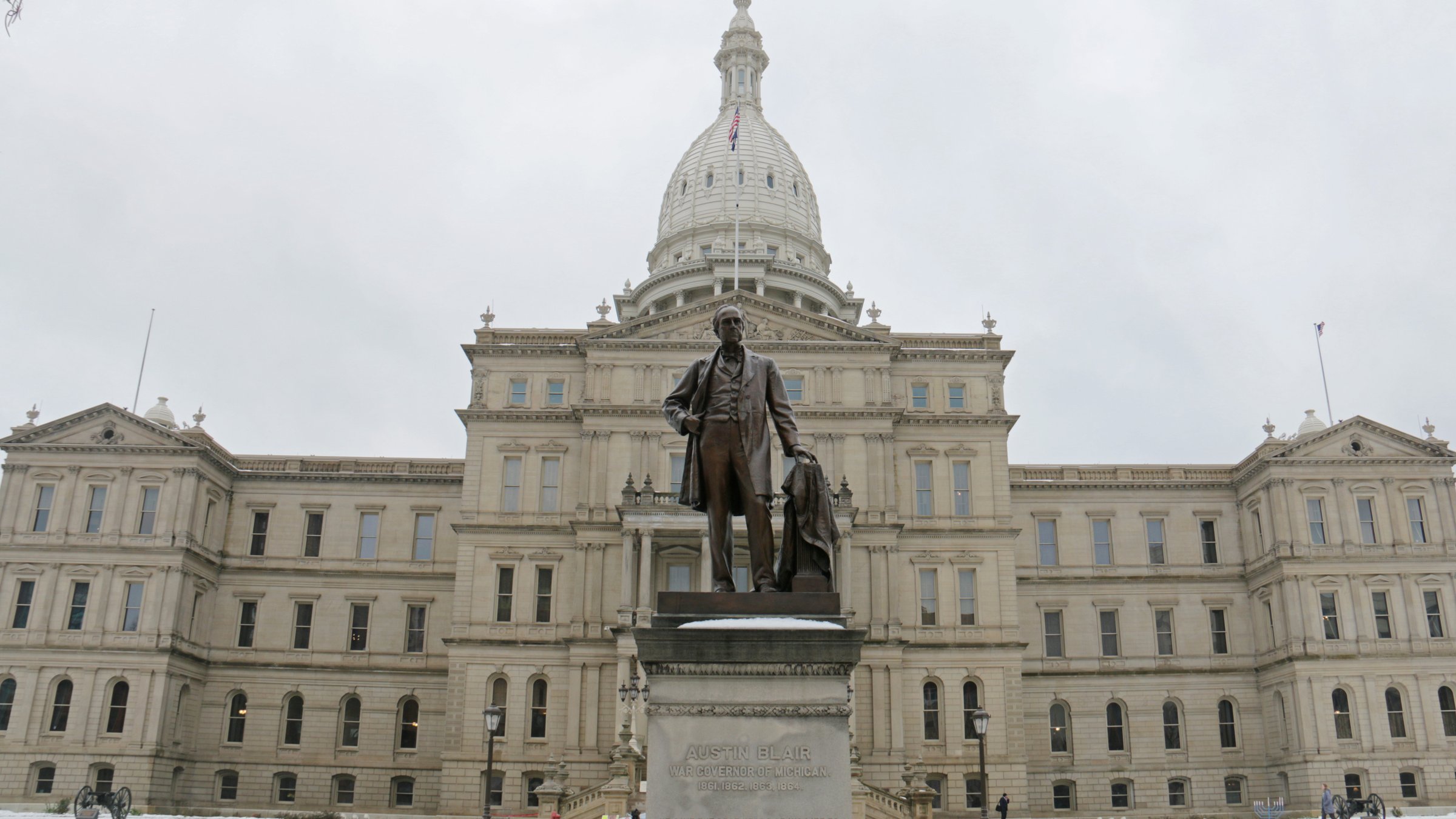The Catholic Church is politically homeless. What the Church teaches and its application to public policy cannot be pegged as "conservative" or "liberal" ideology or as Republican or Democratic.
To see this applied in real life, look no further than the Michigan Catholic Conference’s activity so far in the 102nd Legislature in Lansing. The conference, which presents the advocacy positions of the Catholic bishops in Michigan in state government, has supported policies that have won bipartisan support, just Democratic support, or just Republican support — sometimes all in the same day.
In the opening weeks of this session, the MCC continued its enthusiastic support for expanding the state's Earned Income Tax Credit to help working families make ends meet. Both parties supported the measure on its way to becoming law, given that it is good public policy and a proven path out of poverty.
After that, the MCC stood up for the rights of religious organizations as Democrats took up legislation to expand the state's civil rights law by adding sexual orientation and gender identity. Republicans joined the MCC in advocating for First Amendment rights by arguing faith-based organizations will be targeted for their beliefs in traditional marriage and in the biological differences between sexes without religious protections in the bill.
Then, the Michigan State University tragedy caused Democrats to accelerate plans to advance gun safety reforms. The MCC has offered past support for gun safety reforms like safe gun storage laws — consistent with similar policies backed by the U.S. bishops at the federal level — but GOP legislative majorities had declined to take up the issue in past sessions.
With Democrats kickstarting the debate in February, the MCC was provided an opportunity to offer public support on an issue that has a direct impact on human life. The Church holds that guns are only part of the problem of violence in society, and that other issues must be considered in the public policy discussions.
At nearly the exact same time, Democrats advanced the promised repeal of Michigan's long-standing law prohibiting abortion. The MCC testified in opposition because removing the law would leave post-viability abortions completely unregulated in the post-Proposal 3 landscape. The MCC was joined by Republican lawmakers who raised similar concerns in proposed amendments that were all rejected by pro-abortion rights Democrats.
These examples demonstrate how the MCC is an advocacy organization with a wide interest in legislative priorities. The conference actively works with lawmakers in both parties, regardless of who is in the majority, and the same has been true for this and past sessions.
This is because the MCC’s advocacy is guided by principles grounded in Catholic social doctrine. The application of Gospel values and Church teaching to the world's affairs transcends political party platforms.
One trademark characteristic of Catholic social teaching is consistency, particularly when it comes to promoting the dignity of human life and recognizing every life as sacred from conception to natural death and every point in between.
Upholding the dignity of human life means the MCC takes positions on issues like abortion and gun violence that may align with one party platform but frustrates the other.
This was on display recently at the Capitol when the House Judiciary Committee in a single day took up the abortion law repeal bills in the morning and gun reforms in the afternoon. The MCC testified against abortion in the morning, then testified in support of gun safety in the afternoon.
While these issues divide the parties, the MCC testified to both because abortion and gun violence destroy human life.
As the U.S. bishops teach in their document on faithful citizenship, "The Church is involved in the political process but is not partisan. The Church cannot champion any candidate or party." Rather, the Church's "cause is the defense of human life and dignity and the protection of the weak and vulnerable."
This is what the MCC stands for in its advocacy in Lansing, regardless of which party is in power, or what positions the party in power takes, or whether the position the MCC takes is popular or not with either party.
The positions the MCC takes on legislative topics advance the common good, and we invite all — citizens and public policymakers — to join in this mission.
Paul A. Long is president and CEO of the Michigan Catholic Conference, the official public policy voice of the Catholic Church in this state.












